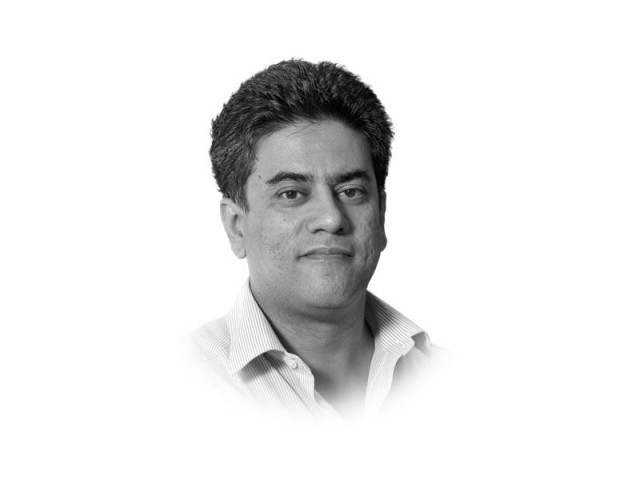Social rights — and wrongs
Media houses and others are waking up to the potential and power of social media in Pakistan

The writer is the former editor of The Express Tribune. He tweets as @tribunian
There was a time when social media was considered the “new media”, giving the impression that it was used sparingly and only in leisure. But the world has changed and social media in many aspects is emerging not only as the main form of communication for a majority of people but also an important source for news consumption.
Digital editors in Pakistan, for example, will attest to the fact that most of their traffic now comes via social media. People come to read news through popular platforms like Facebook, Twitter and Whatsapp.
Of course, in many respects the theories many of us were taught in journalism school have been turned on their heads. For instance, the Agenda Setting theory, which says that the media has the role of setting the agenda, is redundant. What we are seeing is that any story that is most read becomes the most important story of the day.
There are of course problems with this. People want to read about crime and sex. Editors in the good old days would decide what their readers “ought” to read. That is all changing now.
Some predict that there will come a day when most read stories on the web will possibly become the lead stories in the print edition of the paper. In other words, it would be the Angelina Jolie-Brad Pitt divorce that would be the lead in the papers. We wait for that day.
The other theory that has become redundant is the Gate Keeper theory. Now the media does not decide what is news. The audience does. Thanks to social media, stories can go viral irrespective of the fact that they are produced by a news organisation or an individual.
We have before us the example of the Osama bin Laden killing in a raid in Abbottabad. It was a neighbour who used Twitter to break the biggest story of the decade. Traditional media was fast asleep in Pakistan. We had reported a routine helicopter crash and called it a day.
Coming back to the case of Marc Anwar, 45, in many ways he was an icon for British Pakistanis. He played the role of Sharif Nazir in the immensely popular soap opera Coronation Street. But his crime was that he used foul language on Twitter.
The actor also attacked Indian Prime Minister Narendra Modi and Prime Minister Nawaz Sharif in an offensive tweet. Anwar, from Rochdale, joined Coronation Street in 2014 to play the role of Kal’s [Jimi Mistry] father in what was the first Muslim family on the show.
According to reports, The Sunday Mirror, alerted the ITV network that broadcasts the show which led the actor to be sacked within hours. ITV said in a statement, “We are deeply shocked by the entirely unacceptable, racially offensive comments made on Twitter by Marc Anwar.”
The most interesting comments in response came from Baroness Hussein-Ece, a Liberal Democrat and anti-racism campaigner, who said “He is a public figure and he’s gone about this in the wrong way.”
The challenge with social media is to use it to your advantage. One gets nowhere by spewing hate. In fact, now most news organisations have social media policies under which employees, including journalists, are told what they can do and what they cannot. There are issues of public and private space.
In one interesting case, an airline hostess put on Facebook a picture of herself with some passengers inside an airplane and was sacked as a consequence. Her employers said that the airplane was her place of work and to publish a picture of this without permission meant breaking their social media code.
Increasingly, media houses and others are waking up to the potential and power of social media in Pakistan. To give one example, a former colleague of mine has more followers on Twitter than the circulation of most English-language newspapers in the country. This makes him a powerful media entity in his own right.
Such are the opportunities and challenges that are presented by social media. Now we have to used them to our advantage.
Published in The Express Tribune, September 26th, 2016.
Like Opinion & Editorial on Facebook, follow @ETOpEd on Twitter to receive all updates on all our daily pieces.














COMMENTS
Comments are moderated and generally will be posted if they are on-topic and not abusive.
For more information, please see our Comments FAQ